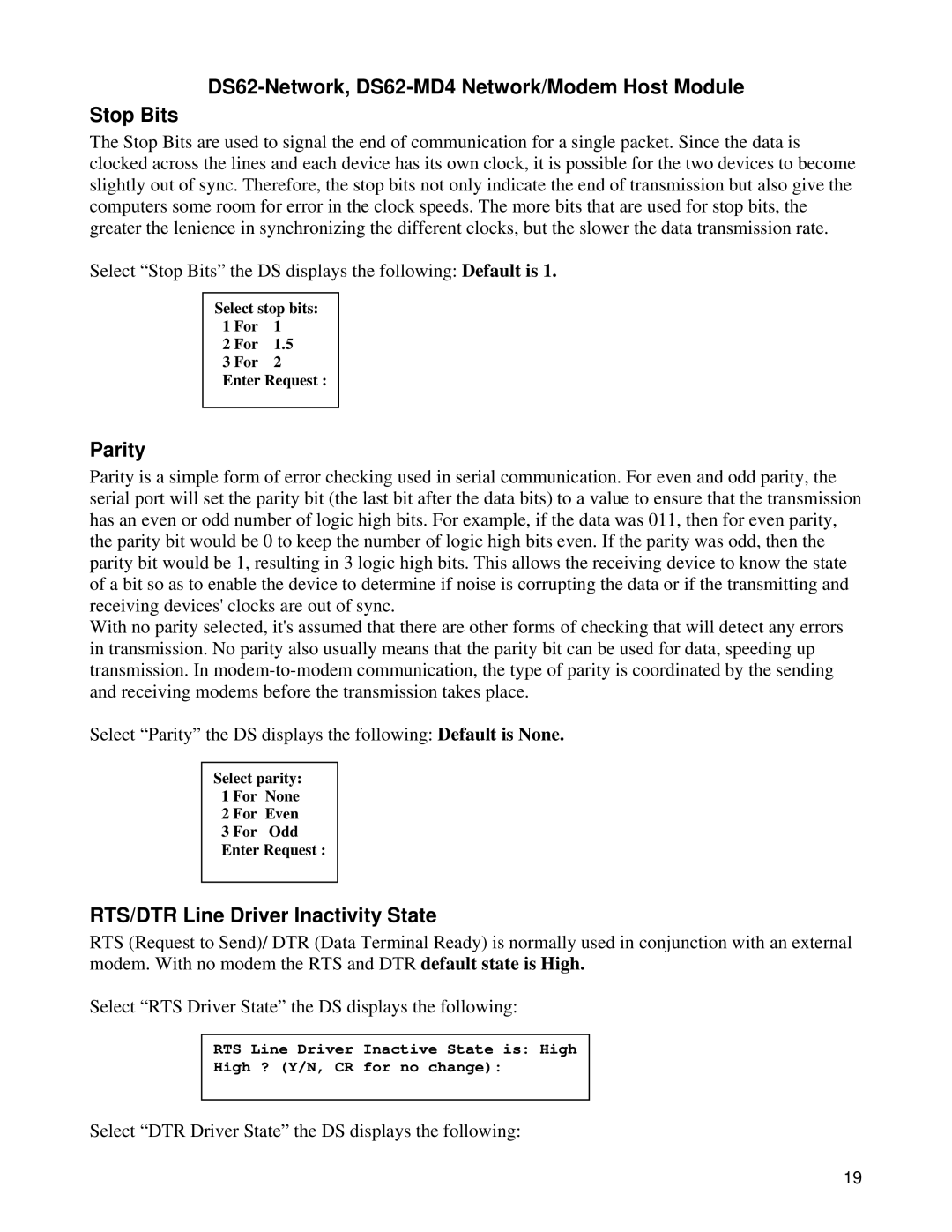
DS62-Network, DS62-MD4 Network/Modem Host Module
Stop Bits
The Stop Bits are used to signal the end of communication for a single packet. Since the data is clocked across the lines and each device has its own clock, it is possible for the two devices to become slightly out of sync. Therefore, the stop bits not only indicate the end of transmission but also give the computers some room for error in the clock speeds. The more bits that are used for stop bits, the greater the lenience in synchronizing the different clocks, but the slower the data transmission rate.
Select “Stop Bits” the DS displays the following: Default is 1.
Select stop bits: 1 For 1
2 For 1.5
3 For 2 Enter Request :
Parity
Parity is a simple form of error checking used in serial communication. For even and odd parity, the serial port will set the parity bit (the last bit after the data bits) to a value to ensure that the transmission has an even or odd number of logic high bits. For example, if the data was 011, then for even parity, the parity bit would be 0 to keep the number of logic high bits even. If the parity was odd, then the parity bit would be 1, resulting in 3 logic high bits. This allows the receiving device to know the state of a bit so as to enable the device to determine if noise is corrupting the data or if the transmitting and receiving devices' clocks are out of sync.
With no parity selected, it's assumed that there are other forms of checking that will detect any errors in transmission. No parity also usually means that the parity bit can be used for data, speeding up transmission. In
Select “Parity” the DS displays the following: Default is None.
Select parity: 1 For None 2 For Even 3 For Odd Enter Request :
RTS/DTR Line Driver Inactivity State
RTS (Request to Send)/ DTR (Data Terminal Ready) is normally used in conjunction with an external modem. With no modem the RTS and DTR default state is High.
Select “RTS Driver State” the DS displays the following:
RTS Line Driver Inactive State is: High
High ? (Y/N, CR for no change):
Select “DTR Driver State” the DS displays the following:
19
